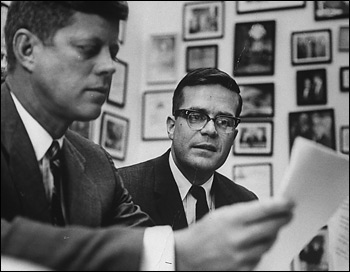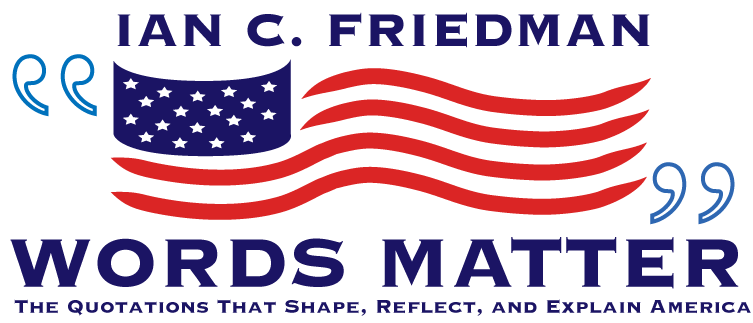“Various and Sundry, 11-15-10”
 * Ted Sorensen, President John F. Kennedy’s most prominent speechwriter and the man responsible for the iconic Kennedy quote, “Ask not what your country can do for you; ask what you can do for your country,” died on October 31 from complications from a stroke at the age of 82.
* Ted Sorensen, President John F. Kennedy’s most prominent speechwriter and the man responsible for the iconic Kennedy quote, “Ask not what your country can do for you; ask what you can do for your country,” died on October 31 from complications from a stroke at the age of 82.
In addition to his role as a speechwriter, Sorensen was an important and trusted adviser to Kennedy, who called Sorensen his, “intellectual blood bank.” Historian Douglas Brinkley called him, “the [Kennedy] administration’s indispensable man.”
Following Kennedy’s assassination, Sorensen continued a successful career as a speechwriter for Democratic leaders including Lyndon Johnson, Robert Kennedy, and Gary Hart. He also worked as an international lawyer and author, writing several books that helped solidify the messages of Kennedy’s that he helped craft.
This Washington Post obituary of Sorensen concludes with his view of the importance of presidential words, a field that he–perhaps more than any other person–helped raise.
During the Obama campaign, Mr. Sorensen said he was perplexed at the derision of the candidate’s addresses as “just words.”
” ‘Just words’ is how a president manages to operate,” Mr. Sorensen told the Boston Globe. ” ‘Just words’ is how he engages the country.”
 * The notion that President Harry Truman’s surprising surge to victory in the 1948 presidential election was due mainly to his “Give ’em Hell Harry” attitude is convincingly debunked by political scientist Brendan Nyhan (linked at the site of fellow Michigan Man, The New Republic’s Jonathan Chait.) According to Nyhan, even then it was economic issues–in this case, the robust growth in the gross domestic product and a declining unemployment rate–that led voters to keep Truman in office, despite the near unanimous predictions of his political end that had been echoed
* The notion that President Harry Truman’s surprising surge to victory in the 1948 presidential election was due mainly to his “Give ’em Hell Harry” attitude is convincingly debunked by political scientist Brendan Nyhan (linked at the site of fellow Michigan Man, The New Republic’s Jonathan Chait.) According to Nyhan, even then it was economic issues–in this case, the robust growth in the gross domestic product and a declining unemployment rate–that led voters to keep Truman in office, despite the near unanimous predictions of his political end that had been echoed
Applying this analysis to the 2012 presidential election, Chait concludes:
“Keep this in mind when reading the endless stream of commentary about what President Obama needs to do to win re-election, and then the post-commentary for years to come about how he moved to the center and therefore won, or rediscovered his fighting liberal spirit and won, or refused to change his liberal message and lost, or failed to find his populist voice and lost. About 80% of the question is what happens to the economy. The rest matters only at the margins.”
* Nobody says “What?” quite like Don Draper.




